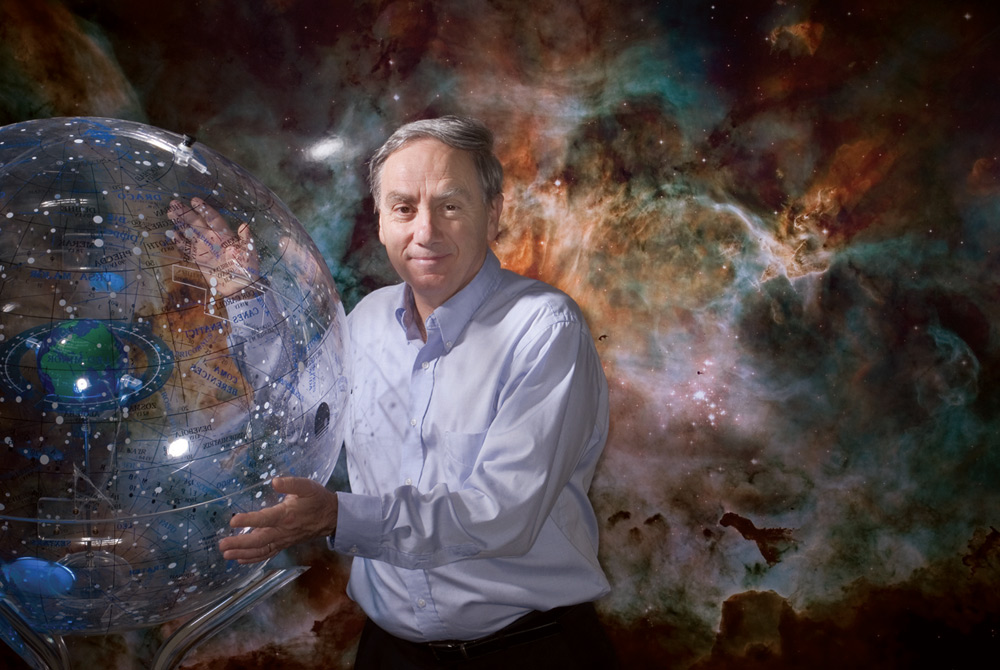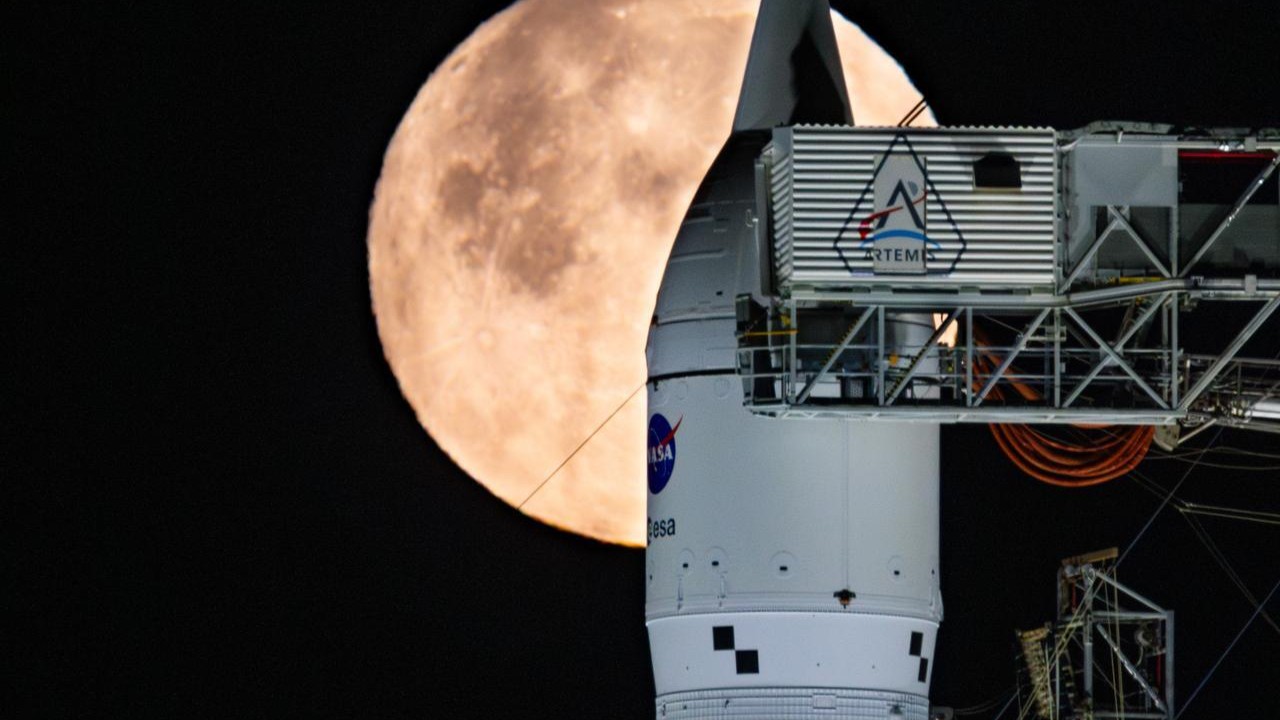Do What You Love: The Hubble Astrophysicist

Breaking space news, the latest updates on rocket launches, skywatching events and more!
You are now subscribed
Your newsletter sign-up was successful
Want to add more newsletters?

Delivered daily
Daily Newsletter
Breaking space news, the latest updates on rocket launches, skywatching events and more!

Once a month
Watch This Space
Sign up to our monthly entertainment newsletter to keep up with all our coverage of the latest sci-fi and space movies, tv shows, games and books.

Once a week
Night Sky This Week
Discover this week's must-see night sky events, moon phases, and stunning astrophotos. Sign up for our skywatching newsletter and explore the universe with us!

Twice a month
Strange New Words
Space.com's Sci-Fi Reader's Club. Read a sci-fi short story every month and join a virtual community of fellow science fiction fans!
Ever dream about finding a way to do what you love for a living? In my "Do What You Love" column, I ask people who've done it to tell me their secrets. Here's hoping they inspire you to do the same.
Mario Livio was born in Romania, grew up in Israel, and since 1991 has been an astrophysicist at the Space Telescope Science Institute (STScI) in Baltimore. The institute conducts the scientific program of the Hubble Space Telescope and will conduct the scientific program of the James Webb Space Telescope, to be launched in 2018.
Livio is also an “art fanatic” who owns many hundreds of books on art, and who tries to fuse science and art in his writing and lectures.
Livio tells BusinessNewsDaily in an email interview how he found a way to do what he loves for a living and how you can, too.
BusinessNewsDaily: Explain you what you do for a living.
Mario Livio: I am an astrophysicist at the Space Telescope Science Institute (which runs the scientific program of the Hubble Space Telescope). I am also the author of five popular science books. My latest book, "Brilliant Blunders," (Simon & Schuster) will be released on May 14, 2013. I write a regular blog, "A Curious Mind."
BND: How did you end up doing this for a living?
Breaking space news, the latest updates on rocket launches, skywatching events and more!
M.L.: I studied mathematics and physics for my undergraduate, did a Master of Science degree in theoretical particle physics, and a Ph.D. in theoretical astrophysics. I was a professor of physics for about 10 years. After Hubble was launched, I was offered a position at the Space Telescope Science Institute, a position that I felt I couldn't refuse. I was always giving many popular talks in astrophysics, so at one point, I decided to write a popular science book. Four more books followed. The blog represents a combination of my passions for science and for art.
BND: What was the crucial decision you made that led you to this place in life?
M.L.: The crucial decision may have been to leave the position of a professor at the Technion-Israel Institute of Technology and to move to the U.S., to the Space Telescope. This happened in 1991. It was clear after the launch of Hubble, that if you are in astrophysics, this is a central place to be at. This assessment proved to be correct.
BND: What did you want to be when you grew up?
M.L.: I always liked mathematics, and I was always curious about theories of the universe and its workings. I was always interested in origins: How did the universe begin? How did our solar system form? How did life begin? Hence, I knew that I want to become a scientist.
BND: Why do you love your job?
M.L.: I have one of the best jobs one can have: I get to think about the universe! I am also very passionate about encouraging young people to be curious, and to follow their dreams. In my popular books, I attempt to show that real science is more fascinating than any science fiction. Combining my love for science to art, I also try to demonstrate that science and art are intertwined as part of human culture.
BND: What's the biggest misconception about your job?
M.L.: Some people think that science is done by some "mad scientists" who are generally dull people, with no interest in any other disciplines. In my popular books, blog pieces, talks and Facebook postings, I try to dispel these myths.
BND: If you didn't do your job, whose job would you like to have and why?
M.L.: It would have been nice if I actually had some talents as an artist, but since I don't, there is no other job I would rather be doing.
BND: Do you think having a job you love has made you a better person in other areas of your life?
M.L.: I'm not sure about a "better person," but there is no doubt that having a job you love is crucial. After all, we spend most of our waking hours at work.
BND: What's your best advice to other people who are trying to pursue their career dreams?
M.L.: The best advice I can give is: Follow your dreams. If you cannot find precisely the job you wanted, there are two things to remember. It is possible that you'll be able to find that dream job at a later stage. Try to identify what were the qualities that identify your "dream job," and then do your best to incorporate those qualities into the job that you did find.
BND: What's your idea of the perfect retirement?
M.L.: As long as someone still loves what she/he is doing, and she/he can still be productive, I don't see any reason to retire at all. Once someone can truly no longer work, I would hope that he/she can still do something that they really love. This is not to say that people who want to retire should not do so. I have seen many happy retirees, who either listen to many lectures (and even study for credit) or travel extensively.
This story was provided by BusinessNewsDaily, a sister site to SPACE.com. Jeanette Mulvey has been writing about business for more than 20 years. Know someone who loves what they do? Tweet @jeanettebnd with the hashtag #dowhatyoulove.

